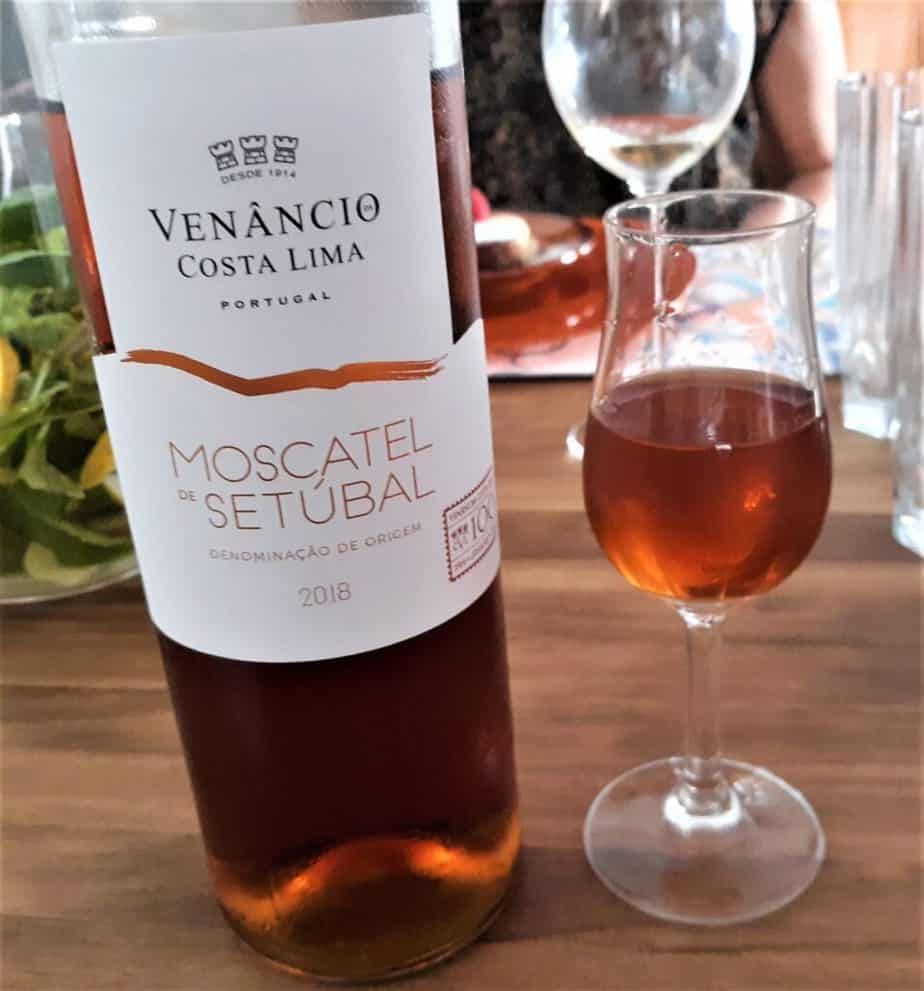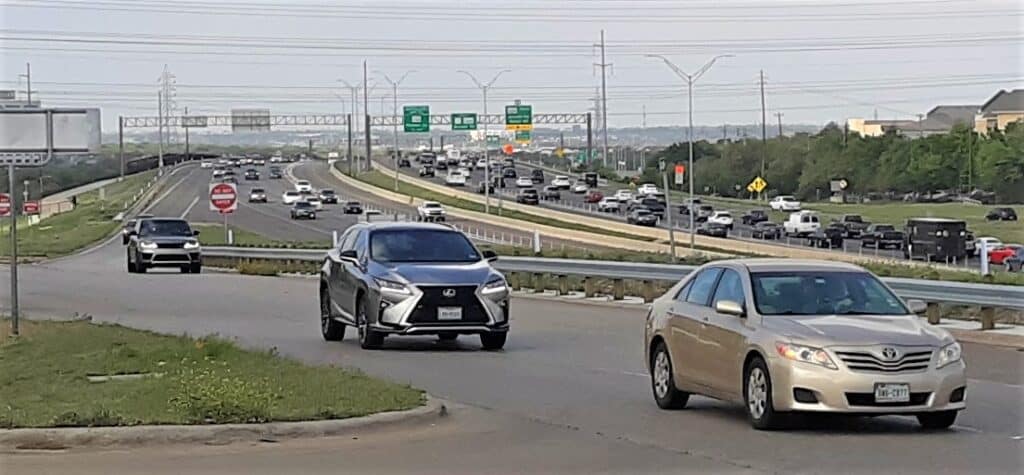You’ve heard of culture shock, the feeling of being upended and out of touch by the customs and traditions of an unfamiliar culture. Recently, I returned to the United States and felt major culture shock in reverse.
We have made our new home in Portugal, but have only lived here a few months. Still, in the U.S., several things seemed different to us.
Eating Out
We were in Austin to clean out our storage unit, sell a few things, and take a couple suitcases full of clothes and kitchen items back to Portugal with us. We were staying in a hotel that was only equipped with a dorm fridge and microwave, so we dined out a lot. Here’s the differences I noticed between U.S. and Portuguese restaurants.
Portion Sizes
American restaurants serve massive amounts of food. Luckily, we had the fridge and microwave in the hotel room and were able to heat up leftovers for breakfast or lunch, saving some money. Because…
Cost
American restaurants are very expensive.
In Portugal, it is easy to sit down at a casual place and spend less than €10 (about $10.50 at the current conversion rate) per person for a good meal, including wine.
In Austin, we were spending $50 or more per person if we got wine or beer with our meal. Luckily, the portions are huge so we were able to often get 2 meals for this price, though that wasn’t always the case.
Our last morning in the States, we got a breakfast of 2 espresso, 2 croissants, juice and fruit for $40!
And the same sticker shock applies when shopping in the grocery store.

For €5, I can get a huge bag of fresh produce, including local figs and peaches, at our local market. In the U.S., I’d pay at least twice as much at a the Whole Foods where we shopped.
Selection
I’d forgotten what it’s like to walk into a store and not only find everything you need, but have several choices for each item.
In Portugal, the selection is much more limited.
Sure, there are big box grocery stores with stocked shelves. But, it can still be difficult to find everything. And, it’s unlikely that you’ll be able to cross every item off your list with one stop.
I have a friend in Portugal who always has three grocery lists. Each has the items for the three stores near his apartment. One day he’ll visit one of the stores, the next day the second store, and maybe later in the week, the third one, just to be able to get everything he and his wife need.
And still, you may not find everything you want.
For example, we have yet to find nutritional yeast in Portugal. I’m sure it’s here somewhere, but we haven’t found it. When we were in Austin, I crammed 2 bags of nutritional yeast into my luggage along with a large jar of red pepper flakes which are available in Portugal but cost a fortune.
On the other hand, you won’t find Queijo de Azeitão or a bottle of inexpensive Moscatel in your local Kroger.

Walkability
Cities and towns in Portugal are set up to allow people to walk everywhere. You’ll often see blocks set up with retail on the ground floor and apartments on the second and third floors. This makes it easy to take care of daily errands on foot in your neighborhood.
Let’s face it, practically everywhere in the United States, you’re tied to your car. For work, to go shopping, even to go for a walk, you need to get in your car.
So-called work/live/play developments are becoming more popular in the U.S. But, they only have limited options for restaurants, shopping and recreation, making a car a necessity.
Some big cities, like New York and Chicago, on the other hand, have sufficient infrastructure and public transportation that make a car superfluous. Travel outside these cities, though, and you’re getting from A to B in a car.
In Austin, for example, there’s only one metro line and it’s infrequently used by locals because it’s not convenient. They’re even talking about shutting down one of the stations completely.

An expansion of the light rail line (I can’t call it a network, there’s only one line) has been approved (finally) by voters, but it remains to be seen if the public at large will embrace trains as a commuter option.
In Portugal, public transportation covers most urban areas and it’s fairly easy to get between cities by bus or train.
We sold our car in the U.S. and haven’t purchased one in Portugal. Our city of Setubal (population about 125,000) is laid out in such a way that we can walk to the grocery store, movie theater, concert hall, restaurants, and parks. And not having a car saves a lot of money each month.
If we need to go further in our town we can take the bus, but taxis are cheap, too. When we were outfitting our apartment, we had to buy things like a table and a printer. While we walked to the store, carrying these items home would be impossible. Luckily, taxi cabs wait outside the mall and we took one home for €5 (about $5.25 U.S.). The same trip would be $15-20 in America.
Another big difference between Portugal and the U.S. is the respect given to pedestrians.
Even though we had a car in the U.S., I would walk quite a bit. But, I always kept my wits about me, especially when crossing streets or crossing an entrance to a store or shopping center.
I can’t tell you the number of time’s I’ve nearly been hit by cars in the States. And I was a person who (almost) always obeyed the laws and crossed the street at the crosswalk when I had the right of way.
Yet, I would constantly have people nearly hit me and then yell or honk their horn. As they drove off in a huff, they’d often fly me the bird.
One time I was walking in a parking lot. People do this all the time; how do you think they get from the building to their car? Some lady driving a mammoth SUV came screeching into the parking lot from the street and nearly hit me.
I had no time to get out of the way. And, even if I did, there was no where to go as parked cars were on both sides of me. So, I stood there and hoped I wouldn’t be a stain on the asphalt.
She stopped a foot in front of me, rolled down her window and cursed me for having the audacity to block her way. I kindly replied that she was free to perform a sexual act on herself and continued on my way.
In Portugal, pedestrians are king. I’ve heard locals tell me that’s because there are steep, steep fines for drivers who don’t yield.
Set one foot in the crosswalk and traffic (even large trucks and buses) come to a screeching halt. If someone doesn’t see you and they blow through the crosswalk, they’ll apologize and wave. Really.
At first, I was taken aback. Sure, I have the right of way. But, I also have the obligation to make sure the crosswalk is clear of oncoming traffic before stepping into the street.
But now, I’m sorry to say, I’ve become much more nonchalant, entitled even. Almost as if to say “I’ve got the right of way, they better stop.”
And the fact is, they do stop. But my attitude could get me in trouble. I mean, I’m not going to win a battle with a car.
Language Barrier
We are not fluent in Portuguese. In fact, I only know a few words and I find it very difficult to understand a local when they speak Portuguese. That means I always carry my phone with me and have the Google Translate app at the ready.
Even if I can get a couple words out, I’m often puzzled by the answer.
This means that I try to prepare for whatever I have to do that day. If I’m going to a certain store, I make sure to make a list and translate the items to Portuguese so I can find what I’m looking for.
If I’m going to a government office, I’ll look up the documents I need to bring and translate any questions I think I might have before I leave the house.
If I’m going to a restaurant, I look up the menu online and translate it so I know what dish I might to order.
Even with this preparation, difficulties arise. When I was at the health service signing up for the Portuguese health plan, the lady at the office didn’t speak English. We used Google Translate on my phone to communicate.
One of her questions translated to something like “Do you have God in the highest?”
I had no idea what she meant. Finally, we were able to figure out she was asking for a certain identification number from me.
If all this sounds stressful, it is. In a way. But, it’s also exhilarating. Trying to navigate a place where you’re an outsider makes you appreciate the difficulties immigrants face all over the world.
Then, we came back to America, and it all vanished. I didn’t have to do any prep before visiting Trader Joe’s to get a bar of chocolate. I didn’t think twice about calling a restaurant to ask about their opening hours on a holiday.
It was all so….easy.
But not nearly as much fun.
I mean, I would never triumphantly announce the successful purchase of allergy medicine at CVS. But, in Portugal, when I did the same thing at the farmacia, it was a big day!
Doggies
People in the U.S. and in Portugal love their dogs. But there are some differences.
I was surprised when I moved to Portugal and saw so many dogs running around without leashes. My initial thought was “there are a lot of stray dogs here.”
But, then I noticed that almost every one of them had a collar and tags.
Wait for a minute or two and the doggie’s human will inevitably appear.
This is completely different in the U.S. Dogs are almost never allowed off-leash in public spaces. And, if a dog is running around unattended, their human will be scolded.
Most towns have dog parks so they can run around without being on a leash and socialize with other dogs.
It took me a while to get used to seeing dogs running around unattended in Portugal. But now it seems normal. I know most of the dogs in my neighborhood and I smile when I see them running around and having fun.
The craziest thing is that these dogs are almost completely acclimated to living in the city.
I swear this is true. I see dogs cross the street AT THE CROSSWALK all the time. I’ve even seen dogs look both ways before crossing the street.
And, I’ve never seen one of these loose dogs get aggressive or bite another dog or person.
When I got back to the U.S., it was a little strange to see every dog on a lease.
About the Author

Brent Petersen is the Editor-in-Chief of Destination Eat Drink. He currently resides in Setubal, Portugal. Brent has written the novel “Truffle Hunt” (Eckhartz Press) and the short story collection “That Bird.” He’s also written dozens of foodie travel guides to cities around the world on Destination Eat Drink, including in-depth eating and drinking guides to Lisbon, Porto, Sintra, Monsaraz, and Evora in Portugal. Brent’s podcast, also called Destination Eat Drink, is available on all major podcasting platforms and is distributed by the Radio Misfits Podcast Network.
